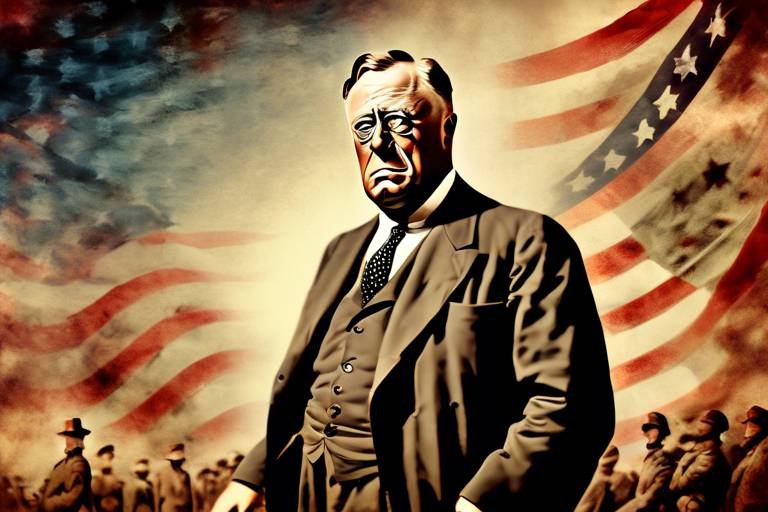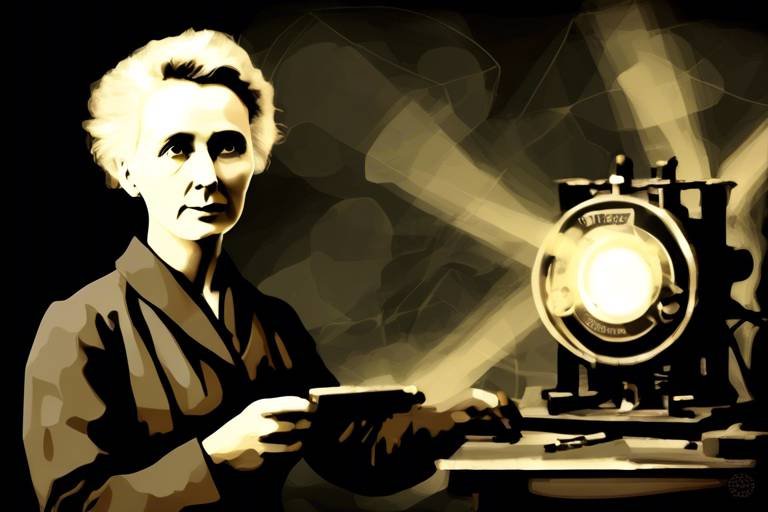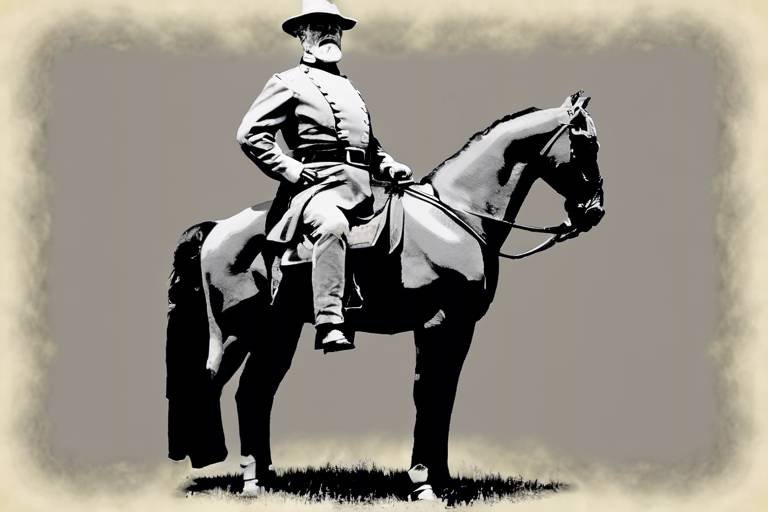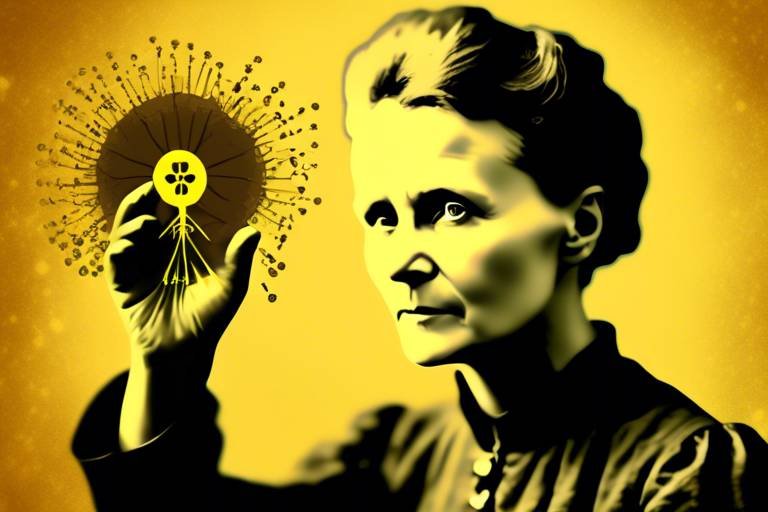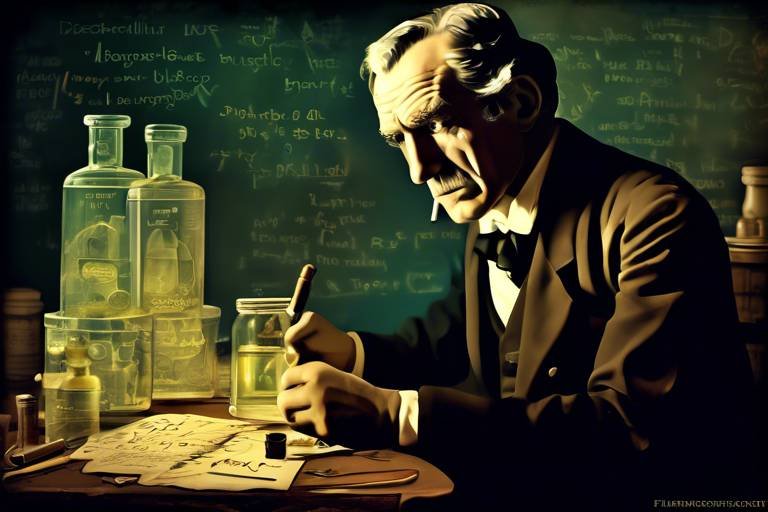Roosevelt: The President Who Led America in War
President Roosevelt, a towering figure in American history, navigated the nation through the tumultuous waters of war with unwavering determination and strategic acumen. His leadership during times of conflict not only shaped the course of history but also solidified America's position on the global stage.
With a background steeped in politics and a keen understanding of international relations, Roosevelt rose to power at a critical juncture in world affairs. His early years and political rise laid the foundation for the decisive leadership he would exhibit during times of war, setting him apart as a president who led with vision and purpose.
As the clouds of World War II gathered on the horizon, Roosevelt faced the monumental task of guiding America through one of the most challenging periods in its history. His response to the global conflict was marked by bold strategies, decisive policies, and a steadfast commitment to securing victory for the Allied forces.
The attack on Pearl Harbor shook the nation to its core, but Roosevelt's resolute handling of the aftermath rallied the American people behind the war effort. His alliance building with key world leaders further bolstered the Allied forces, turning the tide of the war in favor of freedom and democracy.
On the home front, Roosevelt's leadership extended to managing the domestic front, implementing crucial wartime policies, and mobilizing the American economy for the war effort. The intersection of his New Deal policies with the demands of a wartime economy reshaped American society and laid the groundwork for a post-war era of prosperity.
Reflecting on Roosevelt's legacy, his impact on subsequent U.S. presidents and foreign policy decisions is undeniable. His vision for a post-war world order, culminating in the establishment of international organizations like the United Nations, continues to shape global diplomacy and cooperation to this day.

Roosevelt's Early Years and Political Rise
Before Franklin D. Roosevelt became the wartime leader of the United States, his early years and political journey significantly influenced his approach to leadership. Born into a wealthy New York family in 1882, Roosevelt was exposed to privilege and political connections from a young age. His education at prestigious institutions like Harvard University and Columbia Law School shaped his intellectual development and prepared him for a career in public service.
Entering politics in the early 20th century, Roosevelt quickly rose through the ranks, showcasing his charisma and ability to connect with the American people. Serving as Assistant Secretary of the Navy and later as Governor of New York, he demonstrated his leadership skills and progressive ideals, setting the stage for his eventual presidency.
Despite facing personal challenges such as contracting polio, which left him paralyzed from the waist down, Roosevelt's resilience and determination propelled him forward in his political career. His ability to overcome adversity and connect with voters on a personal level endeared him to the American public, paving the way for his historic presidency during one of the most tumultuous periods in world history.

Roosevelt's Response to World War II
During World War II, President Roosevelt demonstrated exceptional leadership and strategic acumen in guiding the United States through one of the most tumultuous periods in modern history. His response to the global conflict was marked by a series of bold decisions and visionary policies that not only shaped the course of the war but also laid the foundation for the post-war world order.
One of Roosevelt's key strategies in response to World War II was the implementation of the Lend-Lease program, which provided crucial military and economic assistance to Allied nations fighting against the Axis powers. By supporting countries like Great Britain and the Soviet Union, Roosevelt bolstered the Allied forces and helped turn the tide of the war in their favor.
Roosevelt also played a pivotal role in the formation of the Grand Alliance, a coalition of the United States, Great Britain, and the Soviet Union aimed at coordinating military efforts and securing victory against the Axis powers. Through his diplomatic skill and statesmanship, Roosevelt forged strong relationships with world leaders like Winston Churchill and Joseph Stalin, laying the groundwork for effective collaboration in the war effort.
Furthermore, Roosevelt's response to World War II was characterized by a commitment to upholding democratic values and promoting international cooperation. He championed the Atlantic Charter, a declaration of principles outlining the post-war vision for a world based on freedom, democracy, and self-determination. This document laid the groundwork for the establishment of the United Nations and shaped the post-war order.
Overall, Roosevelt's response to World War II was defined by a combination of strategic foresight, diplomatic skill, and unwavering commitment to the principles of democracy and freedom. His leadership during this critical period not only led the United States to victory in the war but also set the stage for a new era of global cooperation and peace.

The Pearl Harbor Attack
When the Pearl Harbor Attack shook the United States to its core on December 7, 1941, President Roosevelt faced a monumental challenge in leading the nation through the aftermath of this devastating event. The surprise bombing of the U.S. naval base in Hawaii by the Japanese forces not only resulted in significant loss of life and destruction but also propelled the country into World War II.
Roosevelt's response to the Pearl Harbor Attack was swift and decisive. In his famous speech to Congress the following day, he declared it as "a date which will live in infamy" and called for a declaration of war against Japan. This marked the beginning of America's full-scale involvement in the global conflict, shifting the nation's focus to wartime mobilization and defense.
The impact of the Pearl Harbor Attack on the U.S. involvement in the war was profound. It galvanized public support for the war effort, uniting the country in a common cause against the Axis powers. Roosevelt's leadership in the wake of the attack solidified his role as a wartime president, guiding the nation through the challenges of war with resilience and determination.
As the country mourned the loss of lives and grappled with the reality of war on its doorstep, Roosevelt's leadership during this critical moment set the tone for America's response to the conflict. The Pearl Harbor Attack served as a turning point in U.S. history, shaping the course of the war and the nation's role on the world stage.

Roosevelt's Alliance Building
During the tumultuous times of World War II, President Roosevelt proved to be a masterful diplomat in building alliances with key world leaders to strengthen the Allied forces and advance the war effort. His strategic approach to forming partnerships played a crucial role in shaping the outcome of the global conflict.
Roosevelt understood the power of collaboration and unity in times of war. By forging strong alliances with leaders such as Winston Churchill of Great Britain and Joseph Stalin of the Soviet Union, Roosevelt was able to create a united front against the Axis powers. These alliances not only bolstered military cooperation but also laid the foundation for post-war diplomacy and international relations.
Through skillful negotiation and diplomacy, Roosevelt navigated the complexities of working with diverse allies with varying interests and ideologies. He recognized the importance of maintaining strong relationships with key partners to ensure the success of the Allied war effort.
Furthermore, Roosevelt's alliance building extended beyond military cooperation to include economic and strategic collaboration. By aligning the interests of the Allied powers, Roosevelt was able to coordinate efforts on multiple fronts, from military campaigns to resource allocation, effectively leveraging the strengths of each nation for the common goal of victory.
In essence, Roosevelt's alliance building was not just about military strategy; it was a testament to his visionary leadership and ability to unite nations in the face of a common enemy. His diplomatic skills and strategic foresight played a significant role in shaping the course of World War II and laying the groundwork for a new era of international cooperation.

Roosevelt's Domestic Policies During War
During the tumultuous times of war, President Roosevelt's domestic policies played a crucial role in steering the nation towards victory. As the conflict raged on, Roosevelt implemented a series of measures aimed at mobilizing the American economy and society for the war effort. One of the key pillars of his domestic policies was the continuation and adaptation of his New Deal programs to meet the demands of wartime production.
Roosevelt's administration focused on ramping up industrial output to support the military, leading to the rapid expansion of manufacturing capabilities across the country. The war economy thrived under Roosevelt's leadership, with industries shifting gears to produce weapons, vehicles, and supplies essential for the warfront. This transformation not only boosted the nation's military strength but also brought economic prosperity to many Americans.
Furthermore, Roosevelt's domestic policies during the war extended beyond economic measures. He introduced various social welfare programs to support families of servicemen, ensure job security for workers in defense industries, and maintain social stability amidst the chaos of war. These initiatives aimed to alleviate the hardships faced by civilians and bolster national unity in the face of adversity.
Amidst the challenges of wartime governance, Roosevelt also prioritized maintaining civil liberties and democratic values within the country. Despite the exigencies of war, he remained committed to upholding the principles of freedom and equality that defined American society. His efforts to balance national security imperatives with individual rights set a precedent for future leaders grappling with similar dilemmas.
As the war drew to a close, Roosevelt's domestic policies laid the foundation for a post-war America poised for growth and reconstruction. The legacy of his wartime leadership reverberated through the decades, shaping the trajectory of the nation and influencing subsequent generations of policymakers. Roosevelt's vision of a strong, resilient America capable of overcoming any challenge left an indelible mark on the country's history.

The New Deal and War Economy
During the tumultuous period of World War II, President Roosevelt faced the daunting task of steering the American economy through the challenges of war while also implementing his signature New Deal policies. The New Deal, a series of programs and reforms aimed at revitalizing the economy during the Great Depression, had already laid the groundwork for Roosevelt's approach to managing the war economy.
Roosevelt's administration recognized the need for a robust industrial base to support the war effort. The war economy demanded increased production of military equipment, vehicles, and supplies, leading to a significant shift in manufacturing priorities. The government worked closely with industries to ramp up production, creating a surge in employment and economic activity.
One of the key aspects of the New Deal that intersected with the wartime economy was the focus on providing relief and support to workers. As millions of Americans joined the military or took on jobs in defense industries, Roosevelt's administration implemented measures to ensure fair wages, safe working conditions, and job security for workers on the home front.
Furthermore, the war economy necessitated strict government control over resources and production to ensure efficient allocation of materials and prevent inflation. Roosevelt's policies aimed to strike a balance between meeting the demands of the military and maintaining stability in the domestic economy.
Additionally, the New Deal's emphasis on social welfare programs continued to shape the wartime policies of the Roosevelt administration. Programs such as Social Security and unemployment benefits provided a safety net for families affected by the war, demonstrating Roosevelt's commitment to supporting the American people during times of crisis.
In essence, the convergence of the New Deal policies with the demands of the war economy showcased Roosevelt's ability to adapt and lead the nation through unprecedented challenges. By leveraging the foundations laid by the New Deal, Roosevelt successfully managed the complexities of wartime mobilization while upholding his vision of a fair and prosperous society.

Roosevelt's Legacy and Impact
When reflecting on President Roosevelt's legacy and impact, one cannot overlook the profound influence he had on shaping the course of American history during times of war. Roosevelt's leadership during World War II left an indelible mark on the nation and set a precedent for future presidents to follow.
One of the key aspects of Roosevelt's legacy is his innovative approach to leadership, characterized by bold decision-making and effective communication. His ability to inspire confidence and rally the nation behind a common cause was instrumental in mobilizing the country for war and sustaining morale during challenging times.
Roosevelt's impact extended beyond the battlefield, as his domestic policies played a crucial role in shaping the American economy and society during the war. The implementation of the New Deal policies, originally designed to address the Great Depression, was adapted to meet the demands of a wartime economy, leading to significant changes in American society.
Furthermore, Roosevelt's vision for a post-war world had a lasting impact on the international stage. His advocacy for the establishment of international organizations like the United Nations laid the foundation for a new era of global cooperation and diplomacy, setting the stage for future efforts to maintain peace and security.
In conclusion, President Roosevelt's legacy and impact on America's involvement in global conflicts cannot be overstated. His leadership during World War II and his vision for a post-war world continue to shape the course of history and serve as a guiding light for future generations.

Roosevelt's Vision for a Post-War World
As World War II drew to a close, President Roosevelt's vision for a post-war world was one of international cooperation and peace. He recognized the need for a new global order that would prevent future conflicts and promote unity among nations. Roosevelt played a key role in the establishment of international organizations like the United Nations, which aimed to foster diplomacy and prevent another world war.
His vision extended beyond just ending the current conflict; Roosevelt sought to create a framework for ongoing collaboration and dialogue between nations. By laying the groundwork for the United Nations, he hoped to provide a platform for countries to address disputes peacefully and work together on common goals.
Roosevelt's post-war vision emphasized the importance of collective security and mutual respect among nations. He believed that by fostering strong international relationships and promoting diplomacy, the world could avoid the devastation of another global conflict. His efforts laid the foundation for a new era of multilateral cooperation and dialogue on the world stage.
Through his vision for a post-war world, Roosevelt aimed to ensure that the sacrifices made during World War II would not be in vain. By championing international cooperation and the principles of the United Nations, he set the stage for a more peaceful and interconnected global community.
Frequently Asked Questions
- 1. How did President Roosevelt's early life influence his leadership during wartime?
President Roosevelt's upbringing and experiences greatly shaped his leadership style during times of war. His struggles with polio and personal challenges instilled in him a sense of resilience and empathy, which he later applied to his decision-making as a wartime leader. Additionally, his political career and familiarity with international affairs provided him with the necessary background to navigate complex global conflicts.
- 2. What were some key strategies employed by President Roosevelt during World War II?
President Roosevelt implemented a range of strategies to guide America through World War II successfully. He focused on building strong alliances with key world leaders, such as Winston Churchill and Joseph Stalin, to bolster the Allied forces. Additionally, his policies aimed at mobilizing the American economy for wartime production and ensuring a steady supply of resources to support the war effort.
- 3. How did President Roosevelt's domestic policies impact the U.S. economy during the war?
Roosevelt's domestic policies, including the New Deal initiatives, played a crucial role in sustaining the U.S. economy during wartime. The New Deal programs aimed at providing relief, recovery, and reform not only helped lift the country out of the Great Depression but also laid the foundation for a robust wartime economy. These policies facilitated increased industrial production, job creation, and economic stability during the war.

